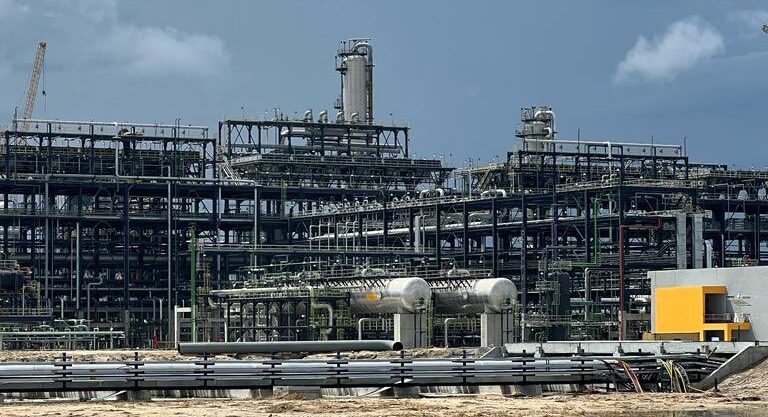
Nigeria begins receiving fuel from Dangote refinery, marking major energy milestone
Nigeria has commenced fuel distribution from the Dangote Refinery, marking a significant step towards energy self-sufficiency.
Your go-to source for in-depth coverage of political developments, economic trends, social affairs, and vibrant cultural stories from across the continent.

Nigeria begins receiving fuel from Dangote refinery, marking major energy milestone
On September 15, 2024, the first fuel tankers rolled out of Aliko Dangote’s vast refinery, a momentous event in the nation’s energy sector.
After eight years of construction, the Dangote Refinery is now fully operational.
The brainchild of Aliko Dangote, Africa’s wealthiest man, this project aims to address Nigeria’s chronic fuel shortages.
With a production capacity of 650,000 barrels of oil per day, the refinery is poised to revolutionize the nation’s energy supply.
The project faced numerous delays, largely due to complex negotiations with the Nigerian National Petroleum Corporation (NNPC).
A breakthrough agreement finally allowed the NNPC to supply 385,000 barrels of crude daily to the refinery, in exchange for becoming the exclusive distributor of Dangote’s refined fuel.
This partnership is expected to fulfill Nigeria’s domestic fuel needs and significantly reduce reliance on imports.
While the refinery’s inauguration is celebrated as a victory for Nigeria’s economy, the agreement between the NNPC and Dangote has not been without friction.
Though Dangote’s fuel is set to hit the pumps in early October, the NNPC has already announced an 11% increase in fuel prices, sparking public concern.
This move has been perceived as an attempt to pressure Dangote on pricing, adding an air of uncertainty.
The refinery, however, was quick to urge Nigerians to ignore premature price speculations, promising to release official pricing soon.
The ongoing tug-of-war over costs could influence public perception of the refinery, especially as Nigerians had hoped for more affordable fuel.
The refinery’s fuel supply comes at a critical time, as Nigeria grapples with frequent fuel shortages.
Despite being Africa’s top oil producer, the nation has long relied on imported refined products, with its state-owned refineries in Warri, Port Harcourt, and Kaduna out of service for years.
By producing fuel domestically, the Dangote Refinery not only aims to meet local demand but also to position Nigeria as a major exporter of refined petroleum products.
This could be a decisive step toward energy independence and strengthen the country’s economic influence in West Africa.
Beyond its impact on fuel supply, the Dangote Refinery project holds immense economic significance.
By reducing the need for fuel imports, Nigeria stands to improve its trade balance and ease pressure on foreign exchange reserves.
Additionally, the deal’s stipulation that transactions between the refinery and the NNPC be conducted in Nigeria’s local currency, the naira, could bolster the nation’s currency, often weakened by fluctuating global oil prices.
The refinery’s launch is a key component of the Nigerian government’s strategy to spur industrialization.
During the official ceremony, Finance Minister Wale Edun remarked that this development signals “Nigeria’s renewed march towards industrialization.”
However, the long-term economic benefits will depend largely on effective price management and maintaining stable relations between the NNPC and Dangote.
I am an avid African news observer, and an active member of Daily Mail Africa.
I’m Passionate about staying informed on diverse topics across the continent,
I actively contribute to publishing on political, economic and cultural developments in Africa.